For all of the hard work you put in, then it only makes sense to do that same in the kitchen. What I mean to say is… what you eat (and when) will largely decide your success or failure when it comes to recovery.
Furthermore, eating adequate amounts of proteins, carbohydrates and fats after exercise can help to reduce hunger cravings. Why is this important? This helps you to make more intelligent food choices throughout the day. This will keep you on-track where dieting is concerned.
Furthermore (and as you’ll find out in this article) meal timing post-exercise will not only help you to recover quicker, but it will also increase the quality of your recovery. More specifically, improved performance and quality muscle repair.
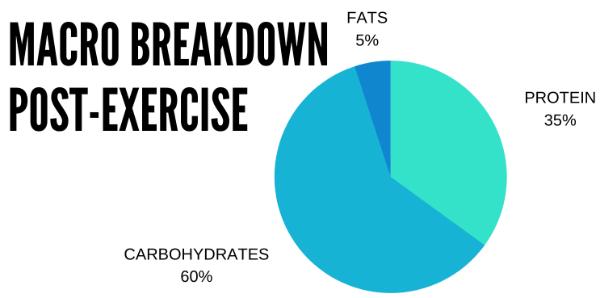
Table of Contents
What To Eat After A Workout?
THE BASICS: Eating proteins (which are made of amino acids) along with carbohydrates and fats post-exercise will help to rebuild your torn muscle fibres. Dividing your macros in the following way (50-65% carbs, 20-35% proteins, and roughly 5-10% of fats) is a good start, but there’s no definitive answer to this as everyone goals and needs are different.
That’s not the whole picture. We also need to take into account the types of proteins, carbohydrates, and fats. And then there’s meal timing – which can play a huge role in the quality and rate of your recovery. All of which I’ve covered in this article:

Some other questions you might need to ask are: Are you already adapted to a well-balanced diet? or are you new to dieting for sport? These variables play a role in deciding which foods (and amounts) you should be eating.
To simplify what might seem like a minefield of information on sports nutrition – I’ve outlined the basics of sports nutrition after exercise to help you increase recovery and performance.
Proteins
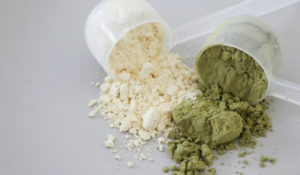 Proteins are needed after exercise to help repair torn muscle fibres. The process that takes place in muscle repair is known as muscle protein synthesis.
Proteins are needed after exercise to help repair torn muscle fibres. The process that takes place in muscle repair is known as muscle protein synthesis.
This is where your body signals for the release of amino acids and other food sources such as carbs and fats to be used in the repair and creation of new muscle fibres.
You can help your body by consuming easy to digest proteins such as powdered forms of amino acids, or whey and vegan protein powders post-exercise with carbohydrates. Doing this increases the insulin response needed for glycogen resynthesis.
Carbohydrates
Carbohydrates (glycogen) protects your muscles from scarring whilst improving energy levels by fighting off fatigue. Furthermore, carbohydrates help to speed up training adaptations.
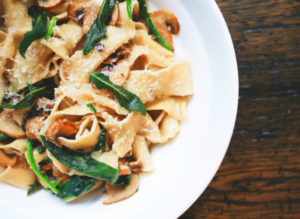 Look at it this way, when you take part in any type of physical activity that requires both aerobic and anaerobic systems to work, along with resistance against the body – such as running, weight lifting, climbing, you name it, your body needs carbohydrates to refuel and repair.
Look at it this way, when you take part in any type of physical activity that requires both aerobic and anaerobic systems to work, along with resistance against the body – such as running, weight lifting, climbing, you name it, your body needs carbohydrates to refuel and repair.
Carbohydrates help to shuttle other nutrients such as amino acids and fat-soluble vitamins and minerals that are required for cellular growth and repair.
Furthermore, without carbohydrates in your muscles and liver, you’d run out of steam. Such as when you’re halfway through a workout or event, and you feel like you’ve got nothing else to give. This is known as hitting the wall.
So, with this information at hand wouldn’t it be great if you could speed up the rate of glycogen resynthesis to perform with less recovery time in your next session? Good news, you can with caffeine!
Caffeine and Carbs
 Caffeine (more specifically coffee), when combined with a post-workout carbohydrate meal, has been shown to significantly increase the rate at which your muscles absorb glycogen. (RELATED: Caffeine Post Exercise: Accelerate Your Recovery)
Caffeine (more specifically coffee), when combined with a post-workout carbohydrate meal, has been shown to significantly increase the rate at which your muscles absorb glycogen. (RELATED: Caffeine Post Exercise: Accelerate Your Recovery)
How does caffeine speed up glycogen resynthesis? This is due to the way caffeine increases plasma membranes within muscles fibres – allowing more carbohydrates to enter your muscle cells.
Fats
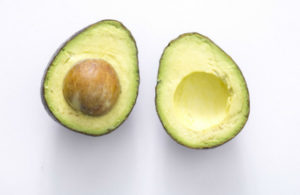 While fats may have had a bad reputation in the past, studies have now proven that fats are vital for health and performance, among other benefits.
While fats may have had a bad reputation in the past, studies have now proven that fats are vital for health and performance, among other benefits.
Fats can increase vitamin and mineral absorption, whilst being an integral part of building new cell membranes.
Furthermore, fats can also increase hormone production whilst lowering inflammation after exercise.
To quickly explain the different types of fats (that you’ll either want to eat in plentiful amounts or lower depending on your goals) see the list below:
Types of Fats
- Monounsaturated fats – You’ll find monounsaturated fats in avocados, olives, and nuts. This type fo fat improves insulin sensitivity, fat loss and energy levels whilst lowering inflammation.
- Saturated fats – Healthy choices are coconut oil and raw butter. Saturated fats are good for changing the bad LDL cholesterol to HDL cholesterol which is needed for hormone production.
- Polyunsaturated fats – This type of fat is usually split into two categories; omega 3’s (flaxseeds, wild salmon, oysters, anchovies) and omega 6’s (eggs, nuts, cereals, wholegrain bread and vegetable oils). Omega 3’s will reduce inflammation whilst supporting hormone and energy levels. Omega 6’s on the other hand support brain and muscle function – but the downside is they can increase inflammation.
- Trans fats – Trans fats, in my opinion, should be avoided. These types of fats are made through a process called hydrogenation that is used to turn otherwise healthy oils into solids – extending their shelf-life. They can lead to heart diseases and the dependence on medications such as statins. You’ll find trans fats in products such as store-bought pizza, pastry crusts, cookies, biscuits and spreads to name a few.
Vitamins, Minerals, and Antioxidants
If you focus solely on the three macros in their simplest form (chicken, brown rice, broccoli for example) then you’ll miss out on many vitamins, minerals, and antioxidant properties that could otherwise enhance your recovery.
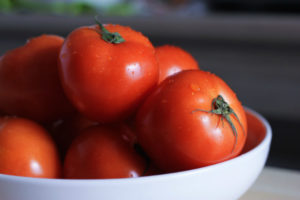 For example, beetroot contains healthy amounts of nitric oxide that will boost blood and oxygen supply into your muscles whilst removing waste products such as carbon dioxide.
For example, beetroot contains healthy amounts of nitric oxide that will boost blood and oxygen supply into your muscles whilst removing waste products such as carbon dioxide.
Then there are cherries, blueberries, and red cabbage, which pack plentiful amounts of polyphenols that will speed up muscle growth and repair.
Furthermore, vegetables such as carrots and butternut squash contain carotenoids and vitamin A, which is a fat-soluble vitamin that acts as a powerful antioxidant – helping to rebuild cell membranes and muscle tissue.
The list goes on when it comes to vitamins and minerals via vegetable and fruit consumption. In my opinion, and as the old saying goes, fill your plate with the colours of the rainbow. Follow that simple rule and you won’t go too far wrong.
Why is Meal Timing After a Workout Important?

After exercise, you have a short feeding window – more specifically, a two-hour feeding window. Why is this important? This is the time when your muscles are primed to receive nutrients such as amino acids and carbohydrates for repair and muscle protein synthesis.
If you miss out on this feeding window, the rate of your recovery will be extended. Not only that, but the quality of your muscle repair could also be diminished – let me explain:
Your muscle fibres are made up of myofibers and elastic tissue also referred to as fibres. When you exercise, you damage these fibres. Subsequently, this is why you need to repair your body with nutrition and rest.
Therefore, if you miss out on this ‘feeding window’ with adequate amounts of amino acids, carbohydrates, fats, and antioxidants, then you’ll be left aching for days. But not only that, on a microscopic level, your muscle fibres will be left with scarring – which has been shown to diminish muscle performance. (I)
Muscle Scarring
Muscle scarring occurs when not enough of the right nutrients are present in the recovery period after exercise.
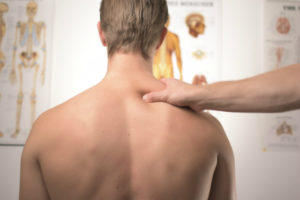 When exercise-induced muscle damage (EIMD) takes place, nutrients such as polyphenols, nitric oxide, and vitamin C and vitamin A are needed to remove the waste products that are left after exercise.
When exercise-induced muscle damage (EIMD) takes place, nutrients such as polyphenols, nitric oxide, and vitamin C and vitamin A are needed to remove the waste products that are left after exercise.
Think of it like this: you damage your muscles during training, waste products are left in and around your muscles, and then, when you eat the right foods, an army of antioxidants and nitrates come to sweep away the debris.
When everything has settled, it leaves you with quality, strong and healthy muscle fibres. This will increase your performance, recovery in later sessions, and your flexibility.
Muscle Glycogen Resynthesis
Muscle Glycogen Resynthesis is the term used for when glycogen (which come from carbohydrates) is sent back into your muscles after exercise.
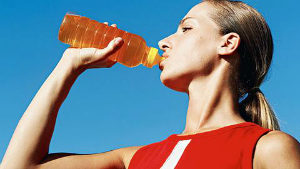 By making sure you get enough carbohydrates back into your muscles post-exercise can make a huge difference in the time it takes to you to recover. (RELATED: Carbohydrates, Glycogen and Post-Workout Recovery)
By making sure you get enough carbohydrates back into your muscles post-exercise can make a huge difference in the time it takes to you to recover. (RELATED: Carbohydrates, Glycogen and Post-Workout Recovery)
Generally speaking, you have a 2-hour post-feeding window.
Eating within this time will not only help you to recover quicker, but it will also improve the quality of your recovery. This is due to the adaption process that takes place in muscle recovery as mentioned above in muscle scarring.
To summarise; Your muscles need carbohydrates, along with nitrates and citrulline to speed up muscle repair whilst reducing muscle scarring. By adopting this approach, your delicate myofibers will have a faster recovery after EIMD.
Sport Nutrition Recommendation?
You could argue that your post-workout meal is the most important meal of the day. By giving your body the right nutrients at the right times, could have a massive impact on the way you feel and perform.
By following the guidelines and tips I’ve highlighted in this article, you’ll be sure to notice a difference in the way you recover.
Furthermore, and something to keep in mind, is that everyone is different. From the sports you take part in, to your lean body mass – which dictates how much of certain macros you need.
For more information on sports nutrition, read my nutrition guides. Or for more specifics on nutrition post-exercise, you can read my article on the importance of carbohydrates after exercise, and how to increase glycogen resynthesis.
References:
(I) Delos, Demetris, et al. “Muscle Injuries in Athletes: Enhancing Recovery through Scientific Understanding and Novel Therapies.” Sports Health, SAGE Publications, July 2013. (source)

Leave a Reply